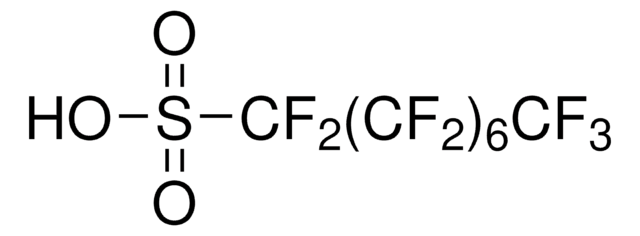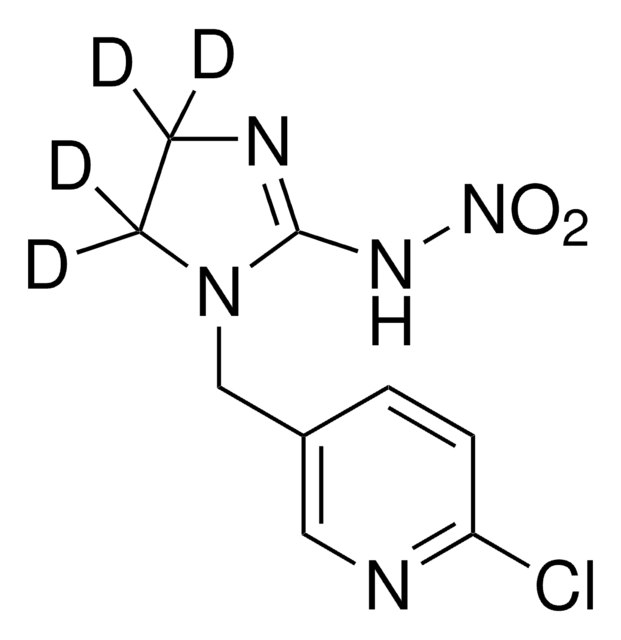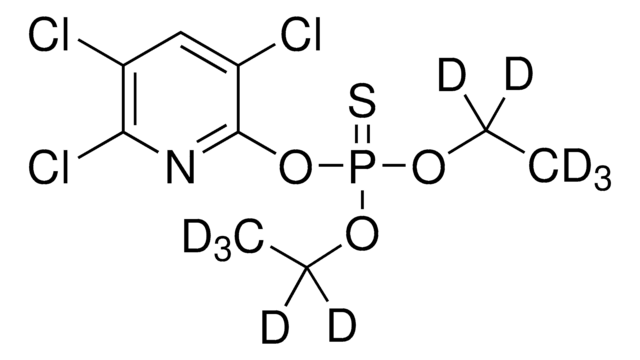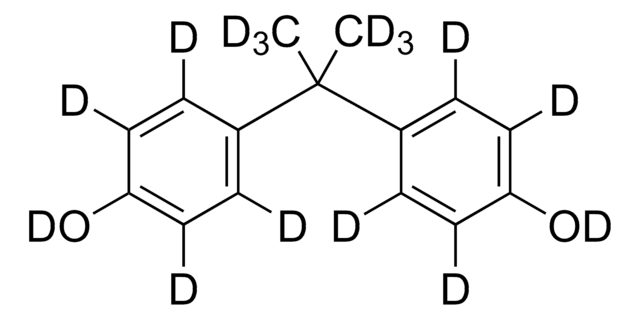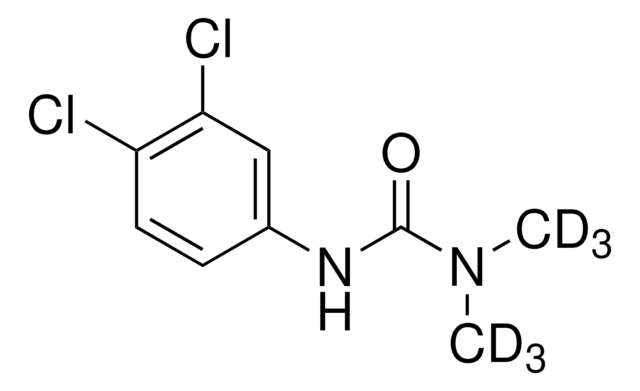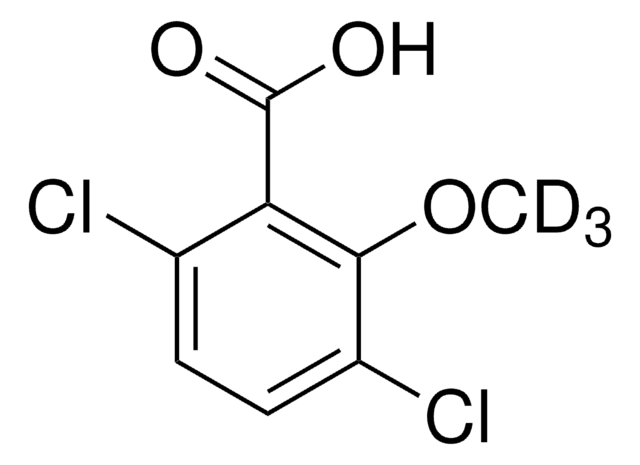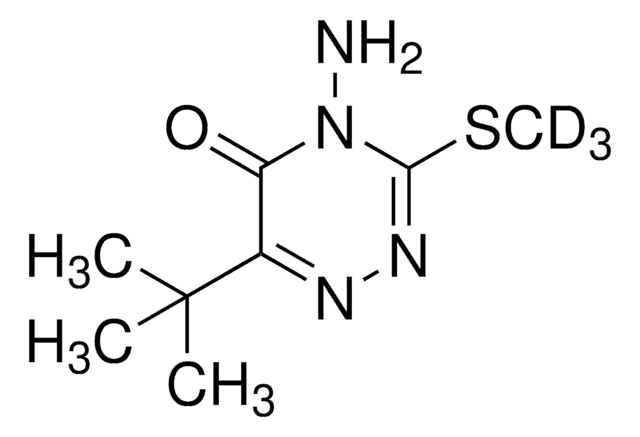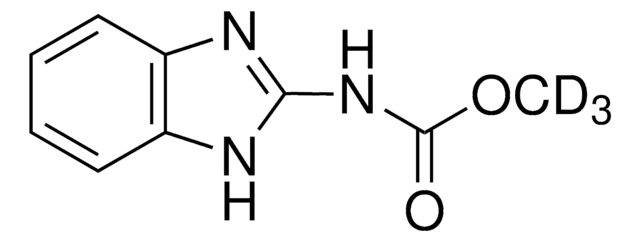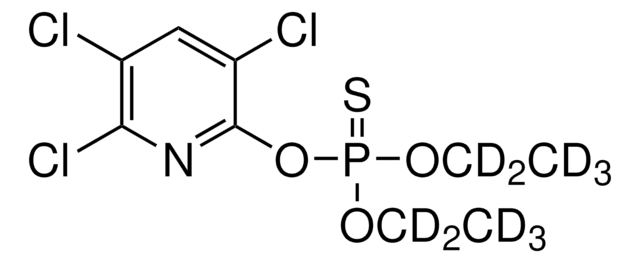34053
Atrazine-d5
PESTANAL®, analytical standard
Synonyme(s) :
2-Chloro-4-pentadeuteroethylamino-6-isopropylamino-1,3,5-triazine
About This Item
Produits recommandés
Qualité
analytical standard
Niveau de qualité
Gamme de produits
PESTANAL®
Durée de conservation
limited shelf life, expiry date on the label
Technique(s)
HPLC: suitable
gas chromatography (GC): suitable
Application(s)
agriculture
environmental
Format
neat
Changement de masse
M+5
Chaîne SMILES
[2H]C([2H])([2H])C([2H])([2H])Nc1nc(Cl)nc(NC(C)C)n1
InChI
1S/C8H14ClN5/c1-4-10-7-12-6(9)13-8(14-7)11-5(2)3/h5H,4H2,1-3H3,(H2,10,11,12,13,14)/i1D3,4D2
Clé InChI
MXWJVTOOROXGIU-SGEUAGPISA-N
Description générale
Application
determination of atrazine in water and soil samples using isotope dilution gas chromatography coupled with mass spectrometry.
Atrazine-d5 may also be used as an internal standard for the estimation of atrazine in water samples using solid-phase extraction and polar organic chemical integrative samplers (POCIS) followed by liquid chromatography with electrospray ionization-tandem mass spectrometry.(LC-ESI-MS/MS).
Informations légales
Produit(s) apparenté(s)
Mention d'avertissement
Warning
Mentions de danger
Conseils de prudence
Classification des risques
Aquatic Acute 1 - Aquatic Chronic 1 - Skin Sens. 1 - STOT RE 2 Oral
Organes cibles
Heart
Code de la classe de stockage
11 - Combustible Solids
Classe de danger pour l'eau (WGK)
WGK 3
Point d'éclair (°F)
Not applicable
Point d'éclair (°C)
Not applicable
Équipement de protection individuelle
Eyeshields, Gloves, type N95 (US)
Faites votre choix parmi les versions les plus récentes :
Déjà en possession de ce produit ?
Retrouvez la documentation relative aux produits que vous avez récemment achetés dans la Bibliothèque de documents.
Les clients ont également consulté
Notre équipe de scientifiques dispose d'une expérience dans tous les secteurs de la recherche, notamment en sciences de la vie, science des matériaux, synthèse chimique, chromatographie, analyse et dans de nombreux autres domaines..
Contacter notre Service technique